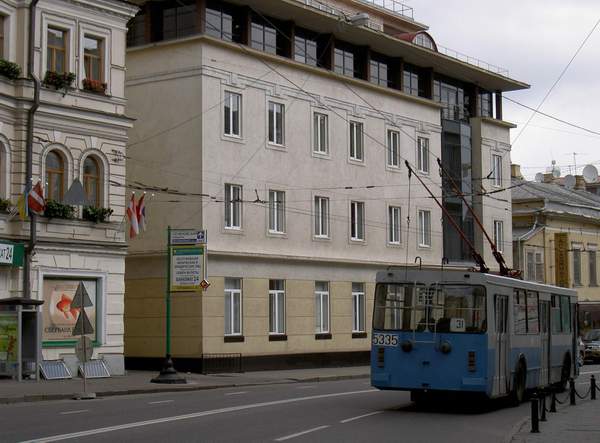
Versión en español no disponible.
In June 2008, the United Nations Development Programme (UNDP) in Russia, commissioned Energy-Strategies with the elaboration of the UNDP Project Document for the full-size UNDP/GEF project ‘Standards and Labels for the Promotion of Energy Efficiency in Russia’. The elaboration of this document was realised in close cooperation with a team of eleven Russian experts.
The Project Document departs from a detailed situation analysis and presents the project strategy, as well as management and other operational arrangements.
Over the past years, the building market in Russia has been developing at a high pace, resulting in increasing investments in technical building systems, including equipment such as water pumps, industrial air conditioners, fans and refrigeration units for central air conditioning systems. Also the market for home appliances has shown high growth rates. While the unit energy consumption of new equipment is substantially lower than appliances currently in operation, the energy efficiency of newly sold appliances still lacks behind other parts of Europe.
While improved energy efficiency is a priority of the Government, and energy efficiency standards and labeling are among the instruments stipulated to achieve this goal, there is still no clear strategy for energy efficiency in place, nor is there any specific and effective legislation. Existing energy efficiency standards for appliances and energy consuming equipment are applied on a voluntary basis and are in need of review and update. On the other hand, the existence of a functional system of conformity evaluation and of the corresponding organisations should facilitate the introduction of an updated and mandatory standards and labelling scheme. As consumer surveys in Moscow have revealed, consumer awareness is still low. While low income consumers usually cannot afford efficient appliances, and high income consumers tend to buy luxury class products without paying attention to their energy efficiency, medium income consumers increasingly take energy efficiency into consideration in their purchasing decisions.
The project strategy aims at the following main outcomes and outputs:
- To establish an institutional, legal and regulatory basis and to build the capacity of national authorities to facilitate introduction and application of energy efficiency S&L schemes – in particular a ‘National interagency coordination body’ and provisions of energy efficiency S&L under national law – and their testing in one pilot region (Moscow);
- To develop national S&L schemes for selected energy consuming products, including energy efficiency testing and labelling standards, a system of compliance testing, certification and verification, as well as guidelines for the procurement of energy efficient technical building equipment and systems, according to the ‘Federal Law No 94 on Placing Orders for the Supply of Goods, Performance of Works and Provision of Services for Public and Municipal Needs’;
- To enhance interest and strengthen the capacity of the local manufacturers and other supply-chain stakeholders to comply with the new energy efficiency standards and to bring energy efficiency models to the market at competitive, and for the majority of the population affordable prices, including voluntary agreements on product labelling and incorporation of energy efficiency in the market strategy of manufacturers and other supply-chain stakeholders in the pilot region;
- To enhance awareness and improve access to non-partial information of residential and commercial clients concerning energy efficiency of targeted appliances, including market monitoring, an internet-based information clearinghouse, consumer awareness campaigns and training of sales personnel.
You can find the UNDP Project Document ‘Standards and Labels for the Promotion of Energy Efficiency in Russia‘ on the website of the Global Environment Facility (GEF) and further information on the website of UNDP Russian Federation.
July 2009
